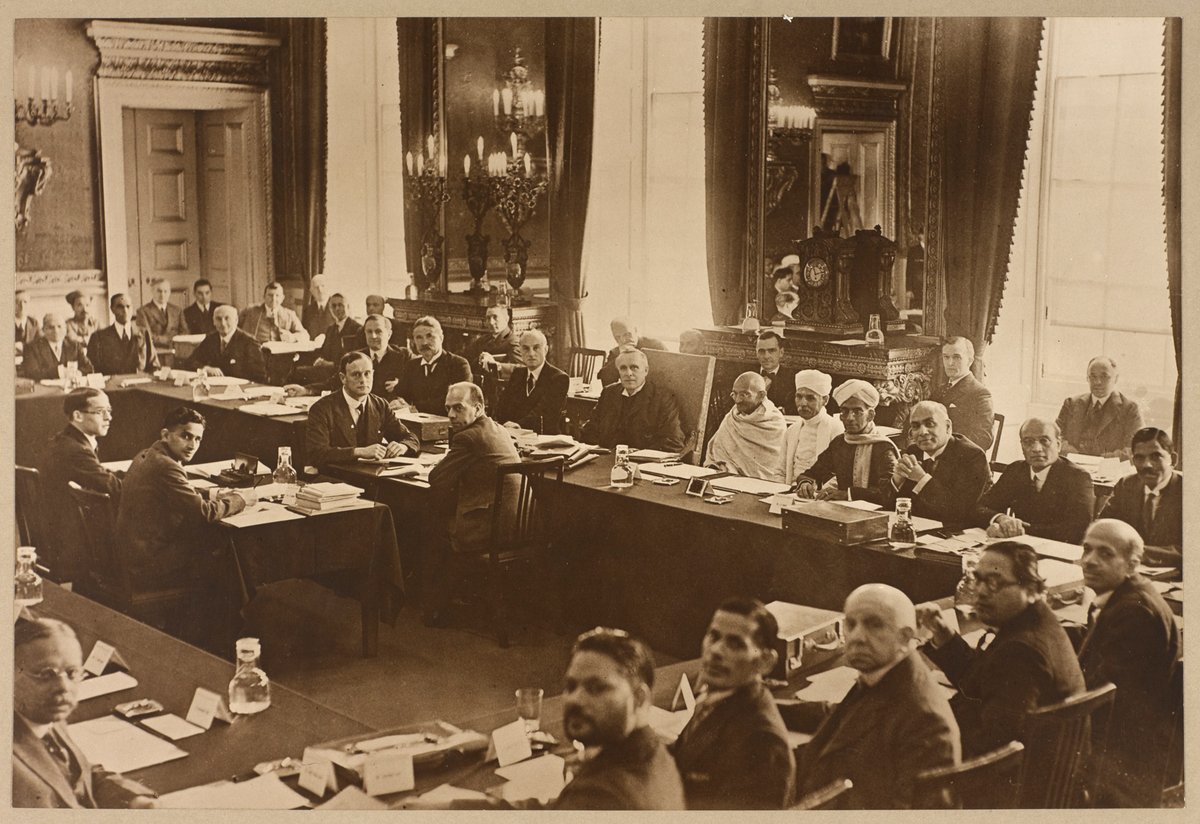First Round Table Conference: A Prelude to India's Constitutional Struggles
History Indian HistoryPosted by NewAdmin on 2025-02-10 08:57:30 |
Share: Facebook | Twitter | Whatsapp | Linkedin Visits: 27

The First Round Table Conference was held in London from November 12, 1930, to January 19, 1931. It was convened by the British government to discuss constitutional reforms in India and to involve Indian leaders in the decision-making process regarding the future governance of the country. The conference was a response to the growing demand for Indian self-rule, particularly after the success of the non-cooperation movement led by Mahatma Gandhi.
The conference was attended by a variety of Indian leaders, including prominent figures such as Muhammad Ali Jinnah, B.R. Ambedkar, and Tej Bahadur Sapru, but the major Indian political force, Mahatma Gandhi, did not participate. Gandhi had launched the Civil Disobedience Movement in 1930, including the Dandi March, and he believed that meaningful negotiations could only take place after the British had recognized the legitimacy of India's struggle for independence. As a result, the Indian National Congress, under Gandhi's leadership, boycotted the First Round Table Conference, arguing that the talks would not be fruitful without full Indian representation.
The conference was a gathering of both Indian and British representatives, but it failed to achieve any significant outcomes. The Indian leaders present had differing views on constitutional reforms. While some, like Jinnah, advocated for constitutional safeguards for minorities, others, like Ambedkar, emphasized the need for social reforms, particularly for the untouchables. The British government, led by Prime Minister Ramsay MacDonald, was not willing to make major concessions regarding Indian autonomy, and the conference ended without a concrete agreement.
Despite the lack of immediate success, the First Round Table Conference set the stage for future negotiations on India's constitutional future. The discussions highlighted the divisions within Indian society, particularly on issues such as the representation of minorities and the role of untouchables. The failure of the conference also further solidified the Indian nationalist movement's resolve to pursue independence, culminating in the eventual success of the Indian independence movement.
Search
Categories
Recent News
- Indian Shooting Triumphs: Rana's Bronze and Team Silver
- Andhra Pradesh MLA's Unique Scooter Inspection Tour
- Air India's Fuel Switch Woes: A Troubling Pattern
- Mamata Banerjee's Supreme Court Showdown: A Battle for Democracy
- AP EAPCET 2026: Unlocking Andhra Pradesh's Engineering Aspirations
- Fatal Leap: Man's Tragic Encounter with Overhead Wires
- CCTV Catches the Uncatchable: Brazen Burglary Attempt in Uttar Pradesh
- Army's Precision Strike: Top Terrorists Neutralized in J&K
Popular News
- Navigating IPO Market Dynamics Amid Volatility and Regulatory Changes
- Massive Worldwide Microsoft Outage Disrupts Multiple Sectors
- Panjapur Bus Stand to Reshape TNSTC Routes
- తెలుగుదేశం పార్టీ - పేదరికాన్ని నిర్మూలించడంలో వాగ్దానం
- Universities Embrace Remote Learning Technologies Amidst Ongoing Pandemic